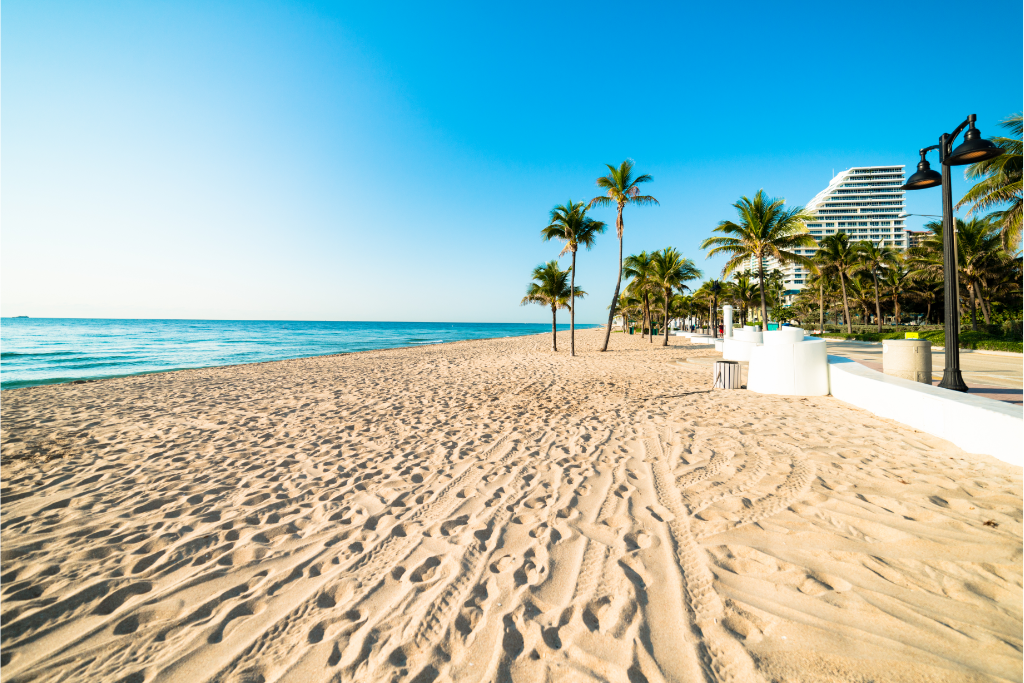Well known for its food, architecture, and Eiffel Tower, France has become a favorite destination for Canadians looking to move out of the country. Before you get to enjoy the benefits of living in France, there are several things you need to prepare!
This article will provide you with an essential checklist of everything you need to know about moving to France!
Moving from Canada to France: Everything to know and do
What to know before your move from Canada to France
1. First steps before moving to France
Visa Requirements
Are you a Canadian citizen who is craving that French lifestyle? As a Canadian, the only way you can move to France is if you are:
- Employed with a work contract in France.
- A temporary worker with a contract between 3 months and a year.
- A scientific researcher.
- A student or an intern.
- The spouse of a French citizen.
- The spouse of a foreign national who is legally living in France.
- Moving to France as a long-term visitor who has enough funds and housing accommodation.
- Moving with a retiree visa
- Moving with a talent passport
Long stay visa in France (visa long séjour visiteur)
If your reason for moving to France is one of those listed above, you will likely need to apply for a long-stay visa before your arrival in France. The first step is to create an account on the official visa website for France. You can then apply for a long-stay visa through this application form. If you prefer to submit your visa application in person, you can visit the French embassy in Canada.
Residence permit in France (carte de séjour)
If you are thinking of extending your move to France, two months before your visa’s expiration, you have to visit your local préfecture (local authority) to apply for a renewable residence permit. You can find your local préfecture by region.
To obtain a residence permit you will have to give proof of sufficient funds, proof of health insurance, proof of work through an employment contract, and you may have to explain your family situation. It is likely that your residence permit will be extended for another year. In some cases, residence permits are extended for 3-years and even up to 10 years.
France-Canada Youth Mobility Agreement
If you are a young person between the ages of 18 and 35 you can apply for a visa to temporarily work or study in France due to the France-Canada Youth Mobility Agreement. The first period is up to 24 months but can usually be extended to 36 months.
Citizenship in France
After legally living in France for 5 years, you can begin your application for a 10-year renewable French citizen card in your local préfecture. You can find your local préfecture by region here.You may have to present certain documents like a birth certificate and proof of marriage along with your ability to speak French.
To find out more about the requirements of moving to France from Canada, go to the French government’s website for immigration. The website is only available in French, so if you want to translate it, right click your mouse and click ‘Translate to English’.
Finding a job
As of February 2025, France’s unemployment rate was at 7.3%.
France has a high demand in many sectors including languages, information technology, web development, data analysis, medicine/nursing, design, project management, sales, customer service, to name a few.
When finding a job in France, you can use employment vacancies and internet job postings like Pôle emploi and Indeed.
Institut national de la statistique et des études économiques (Feb 2025)
Getting there
You may make an informed decision on how to move to France from Canada by looking into these options for transportation.
Flying is the most convenient way to move to France. You can book your flight to get there, for example through its major airport, Charles de Gaulle International Airport. Be sure to arrive in France two or three days before your move in date so you have time to take care of last-minute tasks.
International Moving Company
You can easily move your things from Canada to France by plane or boat, but make sure the moving company you decide on is reliable. So when opting for an international moving company, here’s what you should look for:
- Insurance is included (ask what’s included)
- Rates are not extravagant (compare with other companies)
- They have many Google reviews that are over 4 stars.
- Customer service and transparency is their priority.
Must dos before your arrival
You may find it exciting and challenging to move to France. You will be more prepared for your new life if you are aware of these things beforehand.
- Find an international moving company. You can find a number of international moving companies that can move your belongings from Canada to France.
- If you have a car you would like to bring to France, make sure to do what is necessary for car shipping as well as auto insurance. It might be best to sell your Canadian car and purchase a new one in France as it is best to travel light!
- Apartment Hunting: Plan ahead by researching and scheduling apartment visits before your arrival. This proactive approach will help streamline your housing search process and ensure a smoother transition.
- Consider learning French, the official language of France, as some residents have basic knowledge of English however most, if not all residents prefer to speak French.
- Be prepared to walk to all your destinations, of course there are taxis and cars available however, most residents walk or take their bike to most destinations!
Car Shipping to France
Unless they have significant emotional attachment to their car, most Canadians choose to leave their cars behind when moving to France due to the elevated shipping and import fees and the long vehicle inspection process. If you must absolutely ship your car to France, here are the steps to follow:
- Get various quotes from the best car shipping companies. A trusted car shipping company will have insurance, good reviews, and will make customer service their priority.
- Choose the port of departure.
- Choose the port destination.
- Prepare the car by cleaning it and emptying the tank to ⅛ full or you may have to pay a fee upon arrival.
*Ask your chosen car shipping company for additional requirements.
2. Upon your arrival in France
Must dos right upon your arrival
- Get familiar with your neighborhood, and make sure to take note of the important emergency numbers.
- Locate the essential facilities like the nearest hospital, police station, and fire department for your safety and in case of emergency.
- Be sure to register with the French authorities within three months of your arrival in France. This registration is usually done at the town hall (Mairie) or Préfecture, but if you have a long stay visa, read the statement below.
Register with the French authorities
Within three months of your arrival in France, you must register with the French authorities. If you have a long-stay visa, register with the Office Français de l’Immigration et de l’Intégration (OFII). During this procedure, you will be asked to do an interview and conduct a medical test. Don’t wait till the last minute because it may take some time!
Healthcare
France’s healthcare system is one of the top healthcare systems in the world. If you are an official legal resident of France and have lived in the country for at least 3 months, and plan to stay in France for the next 183 days, you can apply for the Protection Maladie Universelle (PUMA). Applications are known to take a long time, so apply as soon as you are eligible.
Health insurance in France
Prior to your arrival in France you must already have health insurance. If you do not meet the requirements for access to France’s Protection de la Maladie Universelle system after 3 months of residency in France, then you must purchase private health insurance. The top private health insurance providers in France are Assurances Sans Frontières, Votre Assureur Privé, and Mutuelle Santé.
Setting up your cell phone
Cell phone plans in France work differently than in Canada. In France cell phone minutes and data are provided through Sim cards. Make sure your Canadian phone is unlocked prior to arriving in France so you can simply insert a French Sim card and immediately start using your phone from there. Sim card features include data, calls, and texting. 8GB of data with unlimited calls and texting, will cost you around $33 CAD per month. The main French cell phone providers are Orange, SFR, Bouygues Telecom, and Free Mobile.
The Internet in France in terms of pricing is like Canada, and the quality is considerably good. You should expect to pay $50-$60 CAD a month for the internet in France along with an additional installation and equipment fee. The main internet providers in France are Bouygues Telecom, Free, Orange, and SFR.
Getting a driver’s license
If you are moving to France from Canada and are over the age of 18 you can drive in France with your Canadian driver’s license for up to one year. If your Canadian driver’s license is not in French, it must hold a copy of an official translation.
As a Canadian, you won’t have to pass a driving test after a year, but you still have to visit your local Préfecture de Police or Mairie to exchange your Canadian driver’s license for a French one. From then on your driver’s license will only have to be renewed every 15 years.
Car insurance in France
Car insurance in France is mandatory. The minimum car insurance coverage in France you can get is third party liability. In France, Car insurance covers the vehicle, unlike Canada where it covers the driver, so others can use your vehicle and also be covered. The best car insurance companies in France are Allianz, Axa, Clements, and Credit Mutuel.
Setting up a bank account
If you are a Canadian looking to stay in France long-term, opening a bank account is a great way to keep your money safe and even start some investments. To open a bank account you will need your passport, proof of address, and your visa.
France has over 300 banks of which the most popular ones are Banque Populaire, BNP Paribas, Crédit Agricole, Crédit Mutuel, and La Banque Postale.
3. Best places to live in France

Moving to France means deciding where you want to live and considering your priorities. We’ve listed the best places to live in France!
| Neighborhood | Characteristics |
| Toulouse | City filled with history and rich culture |
| Bordeaux | Blend of city and urban lifestyle |
| Rennes | Known as the best city for foreigners |
| Paris | Best for nightlife |
| Brittany | Best for raising a family |
| Lyon | Best for students |
Setting up home services
The most popular electricity providers in France are EDF, Alterna, Cdiscount Energie, Total Direct Energie, and Engie. You won’t be able to choose your own electricity provider, the town you live in will be choosing for you. If you live in an apartment, the electricity will most likely be included in the rent cost.
Gas is also a good option in France, but it is less eco-friendly and since the country encourages green practices, they recommend it a lot less.
To set up water in France you have to create an account with the local water provider. To find out who the local provider is in your area contact your local Mairie. If you live in an apartment building, you don’t have to create your own account as the landlord already has one. Talk to your landlord to know more about how water works in your building.
Should you rent or buy?
The average cost of buying a property in France is 266 800 € and the average cost for an apartment outside the city center in France is 600.99 €.
Trusted websites such as French-Property and Logic-Immo are often used to find available apartment listings and property or engage with real estate agents for assistance.
4. Cost of living in France
| Category | Monthly cost |
| 1 bed apt rent inside city center | 600.99 € |
| Groceries
Numbeo’s grocery list |
340.06 € |
| Utilities
Electricity, heating, cooling, water, garbage |
190.86 € |
| Internet with 60 Mbps | 29.97 € |
| Transit pass | 63 € |
| Entertainment
Meal, taxi, movie |
55.5 € |
| Gym membership | 32.55 € |
| Total | 1312.93 € |
*prices in Euros
Public Transit in France
If you are traveling from one city to another in France, you can take the SNCF train that has a lot of comfy seats and many amenities. You can buy tickets for the SNCF train on their website or at the station directly. Make sure to always have your ticket on hand as there are many inspectors that will verify your ticket’s eligibility.
Taking the metro in France (Paris)
If you’re moving to Paris from Canada, then the easiest way to get around is by metro. To find a metro station look for a sign carrying the big letter ‘ ‘’M’’. You can buy a metro ticket or monthly pass at guichets (ticket offices), cafés-tabacs, newsagents, and automatic ticket machines.
Taking the bus in France
Taking the bus in France is a quick and cost effective way to get around. You can buy a bus ticket or monthly bus pass at guichets (ticket offices), cafés-tabacs, newsagents, and automatic ticket machines. You can also buy a single ticket directly on the bus. Always make sure to validate your ticket at the front of the bus or you may be fined. Note that you can use metro tickets on the bus too!
5. The weather in France
The weather in France is similar to the weather in Canada, so you wont need to buy extra clothing for the seasons. During the summer time, it can be warm and humid, especially because air conditioning is rare in France. Temperatures rise up to 35°C during the months of June to September.
As for the winter, during christmas, France is most beautiful with the snow and decorations. You can expect winters to dip into the negatives, especially in the north.
6. What to do as a local in France
First thing on your list to become a local in France is to purchase or rent a bike! Most residents will ride their bike and use public transportation for everyday travels.
It is known that the people of France love to relax and not take life too seriously. Do not be afraid to immerse yourself in the culture and talk to locals! Walk around your neighborhood and spot your local bars and cafés to enjoy a drink. The most famous cafés in France are Café de la Paix, Les Deux Magots, Café de Flore, to name a few.
If you truly would like to become a local, be sure to educate yourself on France’s history and culture. The best way to do this would be to take a stroll in the museums or walk around Paris where there is a piece of history at every corner!
7. Fun facts about France
- Fun Fact #1: France is home to the Eiffel Tower which weighs over 10,000 tons.
- Fun Fact #2: France is home to the longest beach in Europe known as the Bay of Biscay in southwestern France.
- Fun Fact #3: France is known for its housing of the world famous Mona Lisa painting by Leonardo da Vinci, which can be seen in the Louvre Museum in Paris.
Conclusion
Living in France has its many perks: the beautiful architecture, the culture, and the delicious food. Expect to spend a fair amount of time in restaurants with your new friends and make sure to learn French prior to your arrival so you can easily meet new people!
Want to know more about moving from Canada to Europe? Check out our article on the 7 Things to Know before Moving from Canada to Europe.




